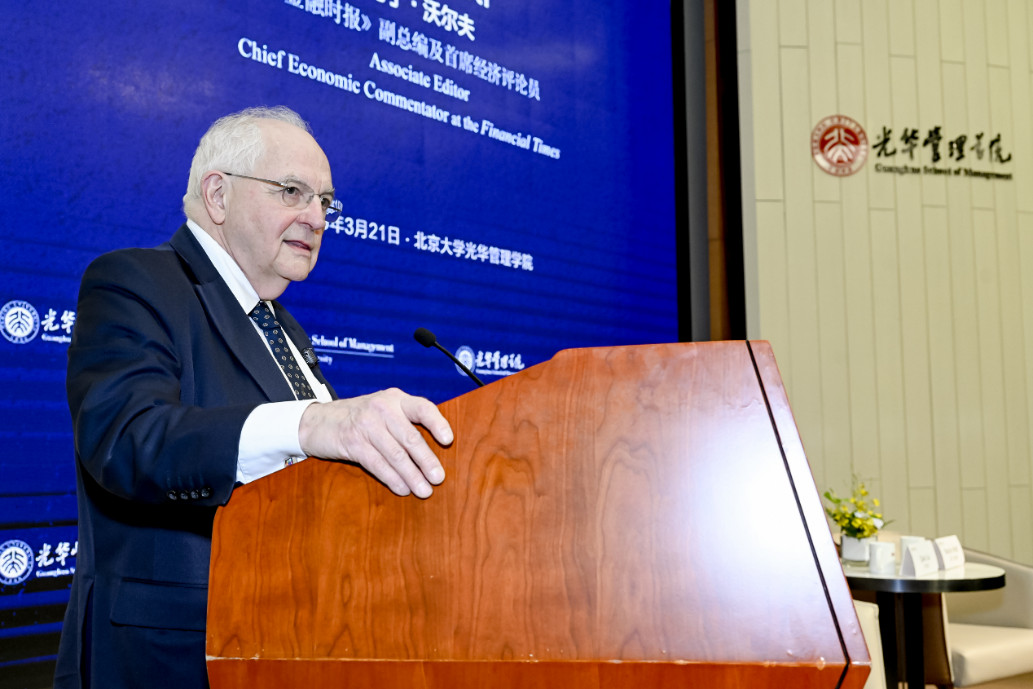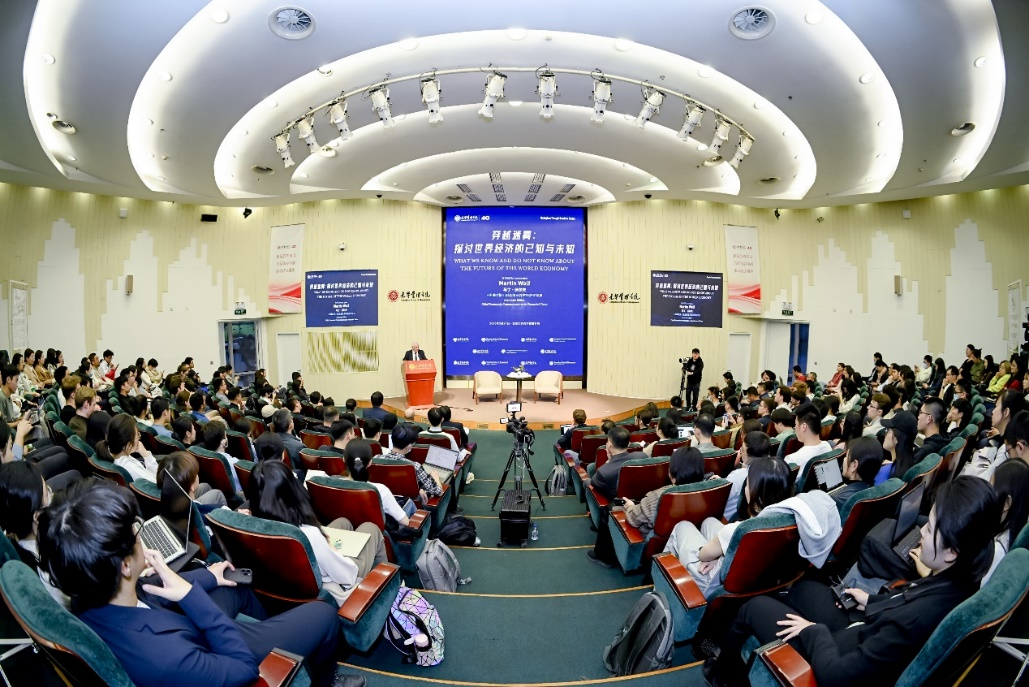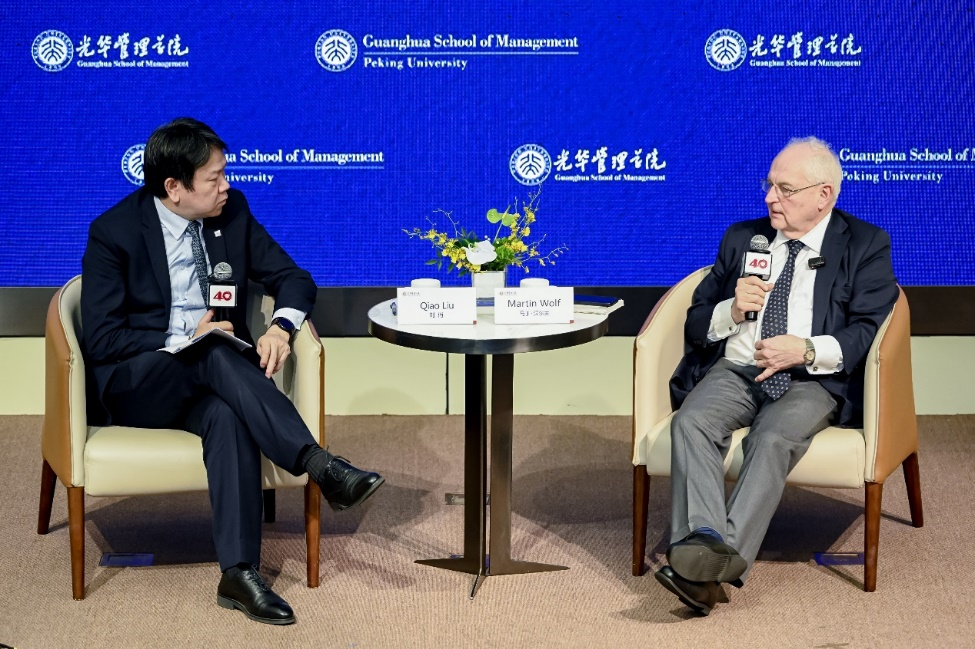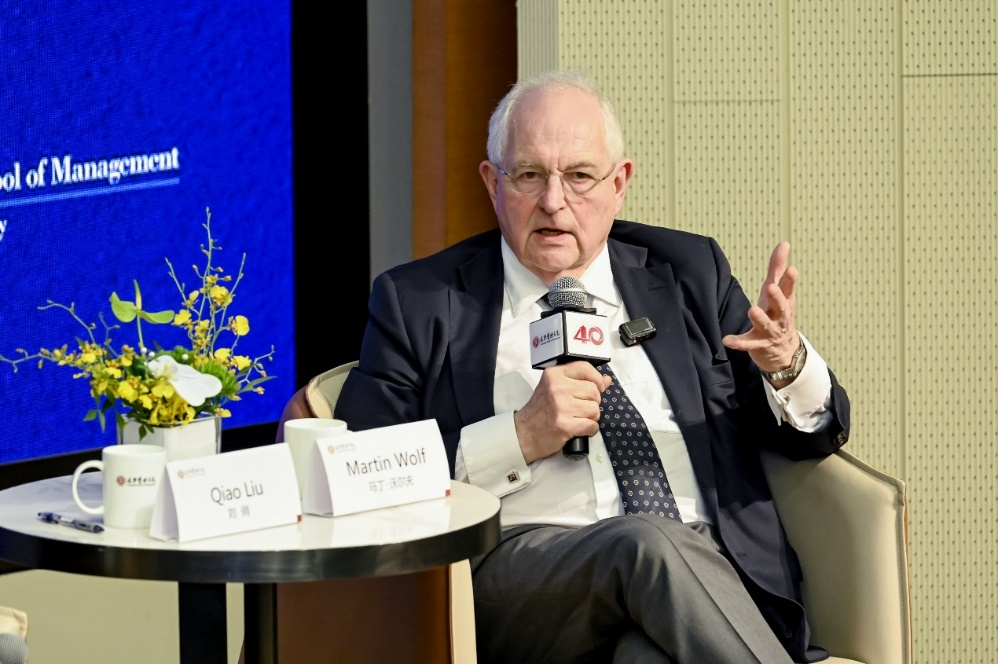The World Economy Is Unforecastable, But Not Unknowable
——Martin Wolf Discusses Global Shifts and Resilience at Guanghua Thought Leader Series
Apr 03, 2025
Peking University, April 3, 2025: “The world is absolutely unforecastable, but that doesn’t mean we know nothing,” remarked Martin Wolf, Associate Editor and Chief Economics Commentator at the Financial Times, during his lecture at Peking University’s Guanghua School of Management. The event, titled “What We Know and Do Not Know about the Future of the World Economy” and moderated by Dean Liu Qiao, drew over 200 faculty members and students eager to engage with one of the world’s foremost economic thinkers.
The dialogue, part of Guanghua’s Thought Leader Series, blended academic rigor with real-world insights, reflecting the school’s commitment to bridging global perspectives and fostering future leaders.
Mr. Martin Wolf
Five Certainties in an Uncertain World
Wolf opened by acknowledging the unpredictability of global shocks—from financial crises to pandemics—but emphasized five structural certainties:
·Demographic Reordering: Africa and South Asia will dominate population growth, while aging societies strain labor markets in advanced economies. “By 2050, Africa’s population could rival today’s high-income countries,” Wolf noted.
·Climate Imperatives: “Temperatures will rise hotter and wilder unless radical global action is taken,” he warned, urging innovation in sustainable policies.
·Tech-Driven Transformation: AI and biotech will reshape economies, but Wolf questioned whether productivity gains in critical service sectors like healthcare and education can match manufacturing’s historic impact.
·Power Shifts to Asia: Emerging economies, particularly in Asia, will drive global growth, challenging traditional economic hierarchies.
·Growth as a Constant: Despite shocks, the global economy has grown ~3% annually since 1950. “Growth isn’t the enemy—misguided policies are,” Wolf argued.
Fragilities and the Path to Resilience
Wolf highlighted three systemic risks demanding urgent attention:
·Financial Stability: Soaring debt levels in advanced economies mirror post-WWII ratios but with weaker growth prospects.
·Political Shifts: The rise of polarized governance threatens international cooperation, though Wolf stressed that “globalization’s core drivers — ideas, technology, and capital—cannot be uninvented.”
·Environmental Tipping Points: “We are nearing irreversible climate thresholds,” he cautioned, calling for multilateral solutions.
On technology, Wolf struck a balanced tone. While AI could revolutionize service sectors, he warned that “garbage data breeds garbage outcomes,” emphasizing the need for ethical frameworks to guide innovation.
Dean Liu Qiao (left), Mr. Martin (right)
China’s Crossroads: Lessons from History
When Dean Liu Qiao raised comparisons between China’s economy and Japan’s “lost decades”, Wolf highlighted key differences. “China’s GDP per capita is one-third of the U.S. — Japan’s was 85% in 1990. The catch-up potential here is vast,” he said. However, he urged China to pivot from property-driven growth to domestic consumption and AI-driven service-sector efficiency, noting: “The ceiling for future growth hinges on revolutionizing how we deliver services like healthcare and education.”
Advice for Future Leaders: “Think Like a 2-Year-Old”
In a heartfelt conclusion, Wolf urged students to embrace interdisciplinary learning. “Economics alone won’t explain our messy world. Study history, philosophy, and psychology. Ask ‘why?’ relentlessly—like a curious child,” he said, drawing laughter and applause. Dean Liu Qiao echoed this, emphasizing Guanghua’s mission to nurture leaders who combine analytical rigor with intellectual breadth.
Read more here: https://en.gsm.pku.edu.cn/info/1051/6741.htm
Source: Guanghua School of Management



